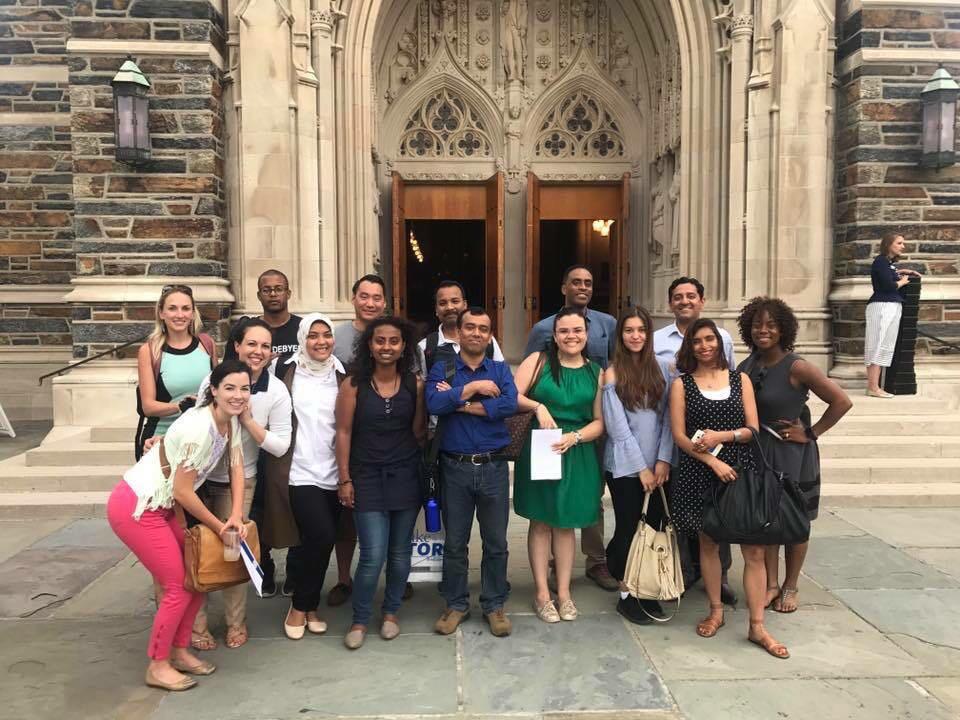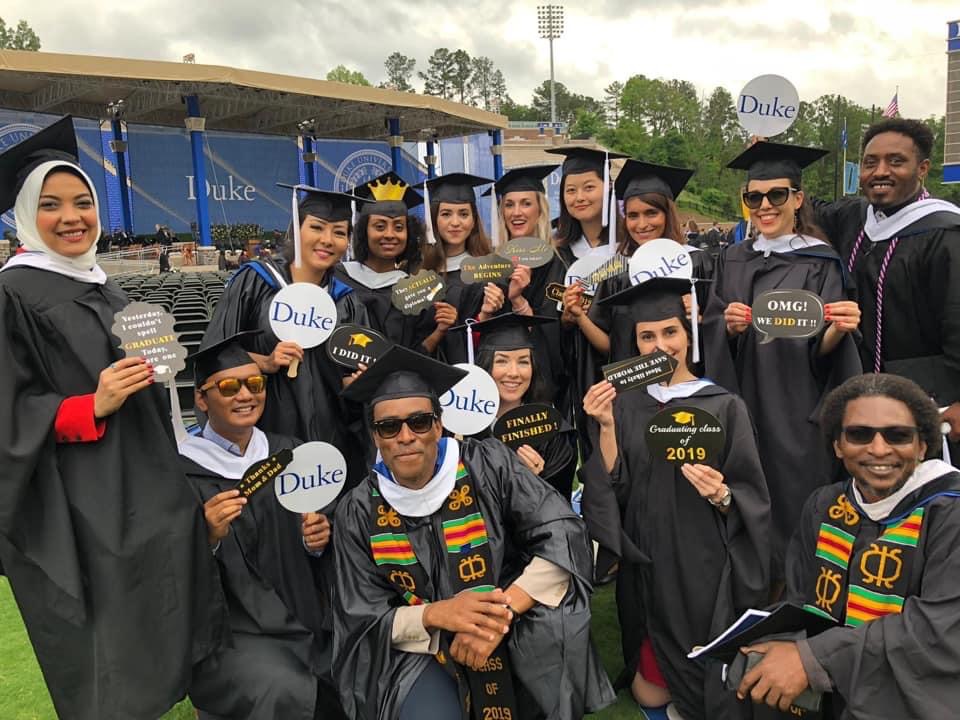Sakun Gajurel, Class 16 (2017-2019)
Twenty Blogs for 20 Years
Sakun Gajurel (MIDP ‘19) grew up in Kathmandu, Nepal. Prior to joining the Master of International Development Policy programme at Duke University as a Rotary Peace Fellow, Sakun worked with various UN agencies addressing the issues of food security, livelihoods, and poverty reduction. As a Duke-UNC Rotary Peace Fellow, Sakun studied alongside and learned from peacebuilders and humanitarians from across the globe. After her fellowship, she joined UNICEF in Nepal and then served as a United Nations Volunteer in Kenya, advocating for youth engagement and mobilization for sustainable development. Today, she works as a consultant for entities ranging from humanitarian and international organizations to startups aimed at improving public services, specially focusing on vulnerable populations such as migrants and refugees. She also serves on the leadership board of the Rotary Club of the Global Partners in Peace, which was formed by Rotary Peace Fellows in 2020.
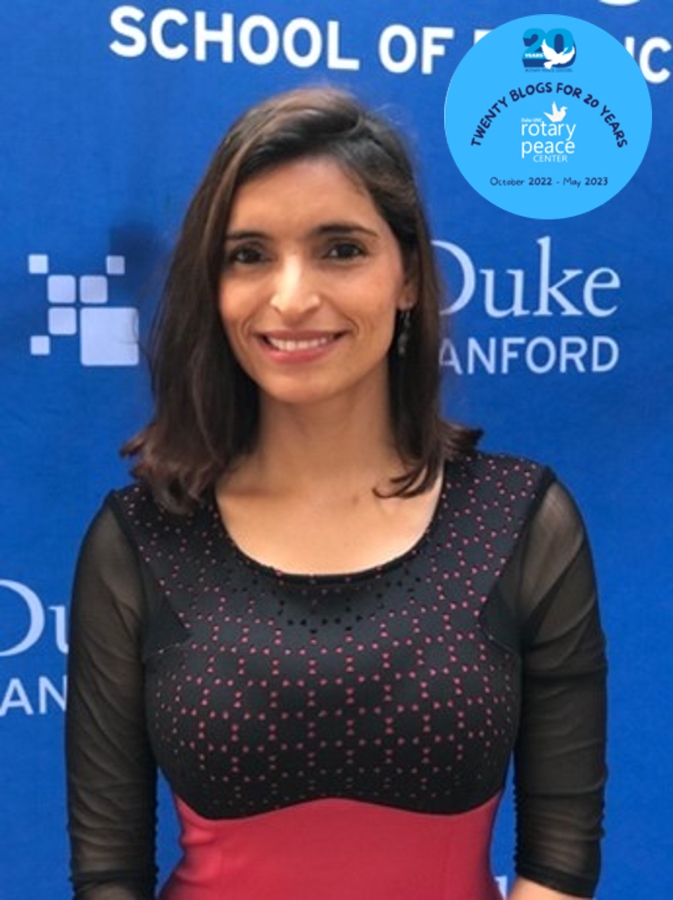 In December 2016, while working with the Food and Agriculture Organization of the United Nations in Kathmandu, I was contemplating on my wishes to pursue further studies, unaware of programmes that suited a mid-career professional’s need. A few weeks later, I heard about the Rotary Peace Fellowship from a friend and looked it up to understand more about the programme. I was pleasantly surprised to learn that one of the Peace Centers was in North Carolina. Having completed by my undergraduate studies a few years earlier in North Carolina, I often wondered if I would ever revisit the Carolinas. If my application was successful, Duke-UNC Rotary Peace Center would be the natural pick for me.
In December 2016, while working with the Food and Agriculture Organization of the United Nations in Kathmandu, I was contemplating on my wishes to pursue further studies, unaware of programmes that suited a mid-career professional’s need. A few weeks later, I heard about the Rotary Peace Fellowship from a friend and looked it up to understand more about the programme. I was pleasantly surprised to learn that one of the Peace Centers was in North Carolina. Having completed by my undergraduate studies a few years earlier in North Carolina, I often wondered if I would ever revisit the Carolinas. If my application was successful, Duke-UNC Rotary Peace Center would be the natural pick for me.
In order to apply, my application needed to be endorsed by a local Rotary Club. I had no knowledge about the Rotary Clubs in Kathmandu, so I googled the clubs and decided to contact the one that was located nearest to my residence at the time. Hearing warm and welcoming feedback on my inquiry, I felt encouraged to pursue this opportunity. Thus, I began preparing my applications and personal essay. I was given an appointment for the application interview the following month. At the end of my interview, I was told that the club would endorse my application. Receiving an endorsement from a local club meant I could officially submit my application to Rotary International.
A few months later, I was notified that my application for the Duke-UNC Rotary Peace Center was accepted, and I was offered the fellowship. Following this news, I was able to formally apply to Duke University’s Master of International Development Policy program, for which I received the admission. All roads lead to North Carolina – that summer, I was back in North Carolina seven years after I had left as a young graduate. As an undergraduate, I resided on campus; thus, there was no logistics I had to plan. This time however, I was a bit anxious because within a week, our Peace Fellow orientation would start followed by the first week of classes, and I needed to settle quickly.
Upon arrival, I found out that my worry was futile because there were so many dedicated Rotarians helping the Peace Fellows, from furnishing our apartments to setting up bank accounts. With the support of Jennifer and Mike Wienold, my host family, I started exploring housing while preparing for the orientation week when I would meet nine other Peace Fellows for the first time. My cohort of fellows were from Australia, Colombia, Italy, Kyrgyzstan, Mali, Pakistan, Palestine, and Serbia. On the first day of orientation, as we gathered in the UNC conference room, little did I know that these fellows would become some of my closest friends over the next two years and beyond. During our time at Duke-UNC, we would embark upon many exciting adventures together: building houses for Habitat for Humanity, tackling development challenges through group projects, weekends at the Carolina coasts, hikes in Duke Forest, and defeating our common enemy – Statistics!
As rigorous as the academic courses at Duke were, the fellowship offered an incredible opportunity to be involved in the local community and foster friendships for peacebuilding. I was introduced to Leaders for Political Dialogue, an initiative founded by Rotary Peace Fellow Linda Low which engaged people of diverse backgrounds and opinions to come together and have a meaningful discussion on the issues affecting their communities. I was fascinated by the idea and decided to join one of the trainings sessions; soon, I would facilitate dialogues with youth from universities and Rotaract groups. Renamed as the ‘Dialogue for Peace,’ we worked with communities, successfully facilitating dialogues which were primarily focused on empathetic listening and respectful communications.
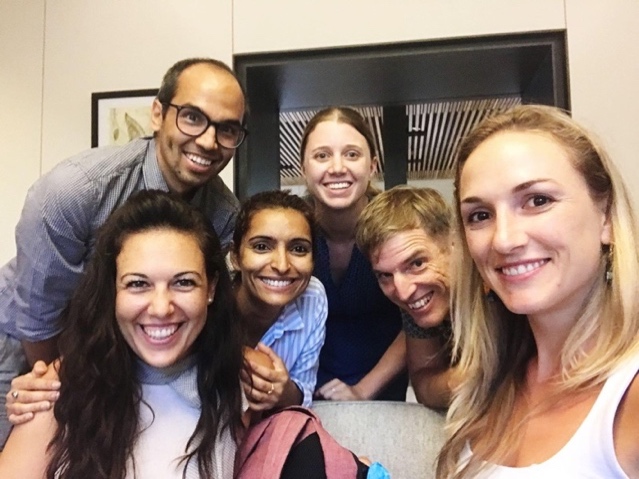 Despite much support, my first semester as a Peace Fellow was often overwhelming. It was a fine balance to keep up with the demands of fifteen or eighteen credit hours and ably foster friendships to really get to know the wonderful group of peacebuilders from around the world. My calendar had never been so full before, but incredible directors like Susan Carroll, Catherine Admay, and Amy Cole made it possible for the fellows to gather and connect through biweekly Brown Bag sessions, weekends away, invitation to events, and wonderful dinners. The learning and exchange of ideas never stopped.
Despite much support, my first semester as a Peace Fellow was often overwhelming. It was a fine balance to keep up with the demands of fifteen or eighteen credit hours and ably foster friendships to really get to know the wonderful group of peacebuilders from around the world. My calendar had never been so full before, but incredible directors like Susan Carroll, Catherine Admay, and Amy Cole made it possible for the fellows to gather and connect through biweekly Brown Bag sessions, weekends away, invitation to events, and wonderful dinners. The learning and exchange of ideas never stopped.
Weeks flew by, and as the second semester started, we were already busy exploring summer internships. Following an insightful class on peace and conflict resolution, I came to learn a lot about the emerging refugee crisis in South Asia among Rohingya refugees. Thus, I decided to go to Cox’s Bazar to support the refugee operation as part of my Applied Field Experience. After numerous applications to various organizations on the ground, I received a summer internship with UN Women in Cox’s Bazar. This was the first time I was working in an emerging refugee crisis, and it was a highly fluid situation. As the humanitarian community tried to address a range of issues from shelter, food, wash and sanitation, education, and intra-community violence, heavy monsoon rains added extra challenges as the roads leading to the camps were often washed out.
It was only in my second year that I got the hang of setting my own pace and felt more relaxed. I managed to spent more time on self-care. I decided to join a running club with some students, and a month later we decided that we would participate in the North Carolina All Women’s Half Marathon the following spring. This kept me busy but also forced me to make time to exercise and spent time outdoors. The last semester was exceptionally busy with everything – the Peace Conference, final exams, and master’s project presentation – all falling within a few weeks, but it also remains the most memorable one for me. We spent a lot of time together to prepare for the annual Peace Conference – titled “Action for Peace” – where we presented our research to a live audience consisting of local Rotarians, host families, Duke and UNC faculty members, family, and friends. Our action for peace included addressing global challenges such as climate change, food insecurity and famine, natural resource management, providing education and livelihoods support to refugee populations, empowering rural women through skills, empowering children and protecting their rights, and addressing rising extremism around the world by engaging community members in conflict resolution and peacebuilding initiatives. As I gave the closing remarks and a message of thanks, it was a bittersweet moment; while we were relieved that our hard work had come to the end, it also meant that our time as Peace Fellows was ending.
At the end of the year I graduated, the COVID-19 pandemic ravaged the world and turned it upside down. Hopelessness grew, and finding a way out of the pandemic became tougher. Within a couple of months, international mobility halted. I was living in Italy at the time, the first country to be hit the hardest by the pandemic. As I continued to work virtually and across time zones, I was able to stay in touch with many of the Peace Fellows, creating a community of friends and supporters. In these bleak situations, you realize how important your network is, and the Peace Fellows and the friendships I had created during my time at Duke became a strong source of support. Thus, when the idea of forming a Rotary Club of Global Partners in Peace was brought up by another Peace Fellow, I was overjoyed. Today, our club is comprised of many former Peace Fellows and other experts who are peacebuilders in their communities. Global Partners in Peace keeps the spirit of the fellowship alive and contributes to Rotary’s 4-Way-Test of goodwill and better friendships. Through the Club, we have been able to create a network of experts and friends working towards peacebuilding, development, and cooperation.
Thanks to the Duke-UNC Rotary Peace Center, countless supporters and well-wishers, and an incredible cohort of Peace Fellows, the two years spent at the Peace Center has made me not only a better peacebuilder and humanitarian, but also a better person able to foster better friendships for peacebuilding. Two of my favorite courses were Human Rights and Conflict and Strategic Storytelling, where we learnt to critically analyze conflicts around the world and understand the power of individual stories. Telling a person’s story in an ethical way restores that person’s dignity and identity, which is crucial to generate good friendships – seeds for peacebuilding!
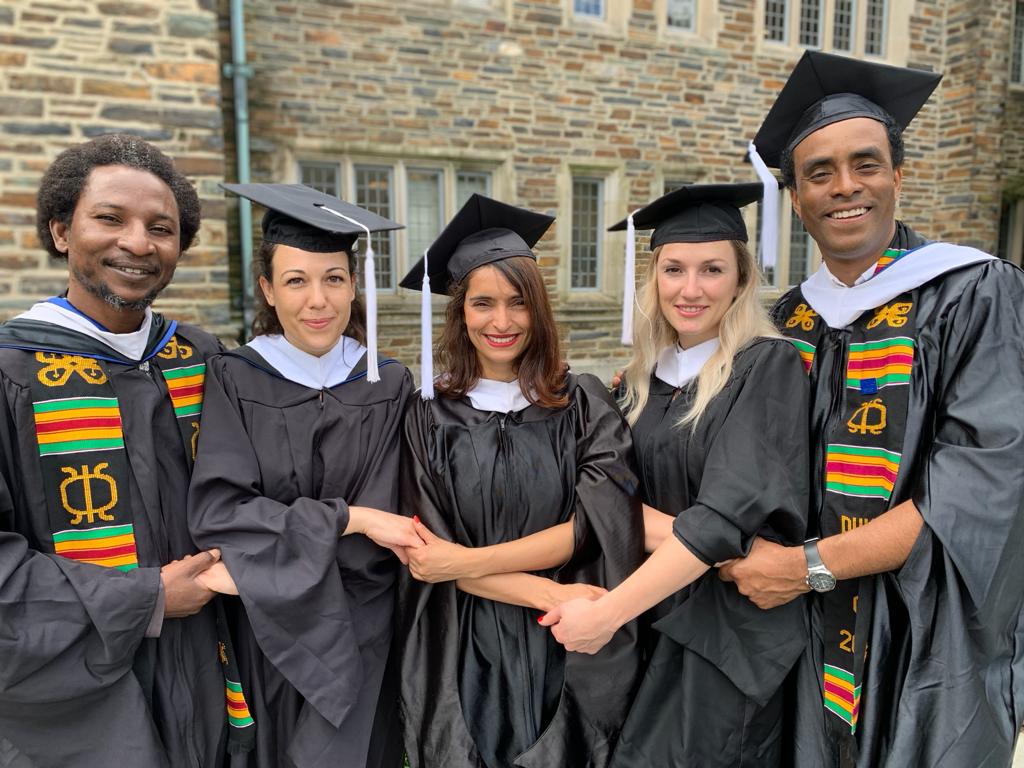 What I cherish the most about the Rotary Peace Fellowship experience is the lifelong friendships, countless laughs, walks in the Duke gardens, and the support and care I received from these diverse group of people who want the same thing – peace around the world! With the increasing conflicts, climate change, and global health crisis, every time I feel grim about the future of humanity, I am reminded of these incredible souls who are shining bright in all corners of the world. That gives me hope.
What I cherish the most about the Rotary Peace Fellowship experience is the lifelong friendships, countless laughs, walks in the Duke gardens, and the support and care I received from these diverse group of people who want the same thing – peace around the world! With the increasing conflicts, climate change, and global health crisis, every time I feel grim about the future of humanity, I am reminded of these incredible souls who are shining bright in all corners of the world. That gives me hope.
